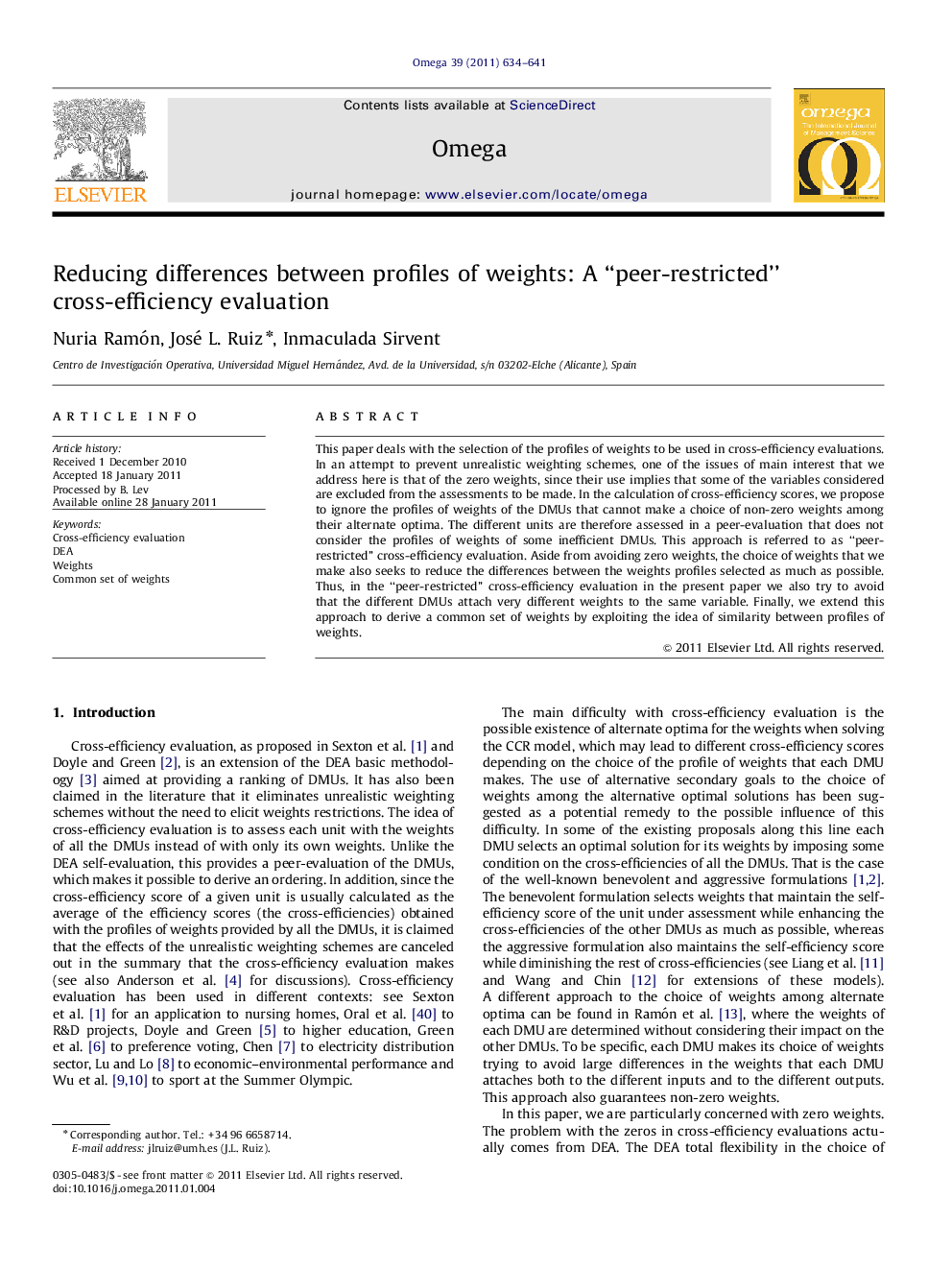| Article ID | Journal | Published Year | Pages | File Type |
|---|---|---|---|---|
| 1032878 | Omega | 2011 | 8 Pages |
This paper deals with the selection of the profiles of weights to be used in cross-efficiency evaluations. In an attempt to prevent unrealistic weighting schemes, one of the issues of main interest that we address here is that of the zero weights, since their use implies that some of the variables considered are excluded from the assessments to be made. In the calculation of cross-efficiency scores, we propose to ignore the profiles of weights of the DMUs that cannot make a choice of non-zero weights among their alternate optima. The different units are therefore assessed in a peer-evaluation that does not consider the profiles of weights of some inefficient DMUs. This approach is referred to as “peer-restricted” cross-efficiency evaluation. Aside from avoiding zero weights, the choice of weights that we make also seeks to reduce the differences between the weights profiles selected as much as possible. Thus, in the “peer-restricted” cross-efficiency evaluation in the present paper we also try to avoid that the different DMUs attach very different weights to the same variable. Finally, we extend this approach to derive a common set of weights by exploiting the idea of similarity between profiles of weights.
Research highlights► We propose a cross-efficiency evaluation without weights profiles of units with zero weights. ► Differences between weights profiles are reduced. Differences in the importance attached to the same variable by the different units are reduced. ► Common sets of weights are derived by summarizing DEA weights profiles more similar among themselves.
